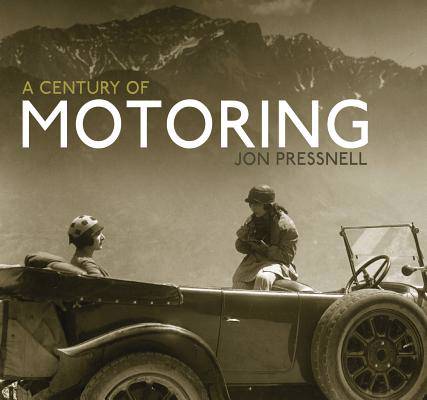
- Retrait gratuit dans votre magasin Club
- 7.000.000 titres dans notre catalogue
- Payer en toute sécurité
- Toujours un magasin près de chez vous
- Retrait gratuit dans votre magasin Club
- 7.000.0000 titres dans notre catalogue
- Payer en toute sécurité
- Toujours un magasin près de chez vous
Description
By 1914 the motor car had taken its definitive form. Tiller steering had at last disappeareed (in 1911 when Lanchester abandoned it); the front engined rear-wheel drive stystem Panhard was almost universal, unit construction was being essayed (the Lagonda 11.9hp); coachwork was moving away decisively from its horse-carriage roots. A new industry was forming, with mass-production by Ford and Morris poised to drive car-ownership upwards. The First World War, precipitated by the assassination of a car-borne royal, was to be the first motorized conflict, and one that would see a generation of soldiers gaining experience of the automobile.
A Century of Motoring charts the progress of motoring from this nodal point to where we are today -more mobile than ever, but with environmental concerns shaping the way cars are made, use, and ultimately discarded. Through 50 carefully-chosen photographs it examines the steady democratization of motoring, the development of the British motor industry, and the place of the car in British life. Along the way it depicts the landmark models that are part of this rich history -the Model T Ford, the Austin Seven, the Jaguar E-type, the Mini -but doesn't forget the oddballs that have added so much color to the motoring scene, specials, and the bubble cars of the Suez era.
Spécifications
Parties prenantes
- Auteur(s) :
- Editeur:
Contenu
- Nombre de pages :
- 112
- Langue:
- Anglais
- Collection :
Caractéristiques
- EAN:
- 9780747815105
- Date de parution :
- 19-05-15
- Format:
- Livre relié
- Format numérique:
- Genaaid
- Dimensions :
- 142 mm x 145 mm
- Poids :
- 158 g

Les avis
Nous publions uniquement les avis qui respectent les conditions requises. Consultez nos conditions pour les avis.






